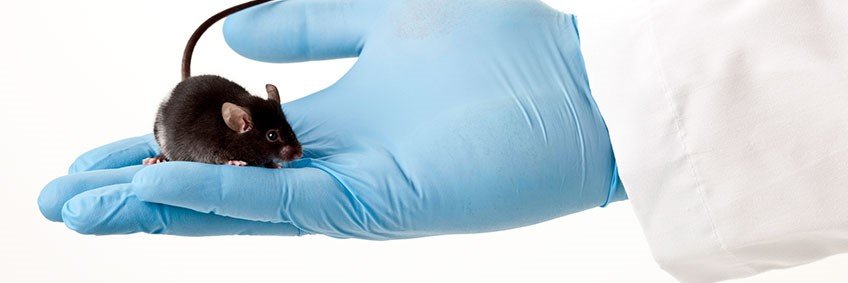
Preclinical Center
The major challenge for neuroscientists in the coming decades will be to understand the extremely complex interactions at different levels, from molecules to intact organs. Scientists use animal models to study neuronal networks and interactions at the cellular level, when there are no alternative methods or when equivalent experiments on humans are not possible for ethical reasons. The focus of animal models in the new Preclinical Center (PCC) is on genetically modified mice.
The Max Planck Institute of Psychiatry is a world leader in the field of behavioral phenotyping of laboratory mice. Stressful situations are simulated in standardized experimental setups and their effects on the cognitive performance and emotional behavior of the animals are studied over long periods of time. This is made possible by the great biological similarity between animals and humans: their genes, cells and organs often perform similar or identical tasks. For example, 95 percent of mouse genes can be found in a similar form in humans.
New building


The PCC, which is scheduled to open on the Institute’s campus in 2021, will enable our scientists to conduct all of the animal behavioral studies at the highest possible hygienic, technical and scientific level. To date, this has been barely feasible due to the building’s structure, the oldest part of which dates back to 1928.
The PCC will enable the preparation, implementation and follow-up of long-term behavioral studies in mouse models of psychiatric diseases, all under one roof. The spatial proximity of the animal housing areas, experimental and laboratory rooms is therefore essential. The focus of the research is on emotional behavior as well as cognitive abilities, with a particular emphasis on the effects of chronic psychological stress.
Picture at the top: iStock_dra_schwartz

